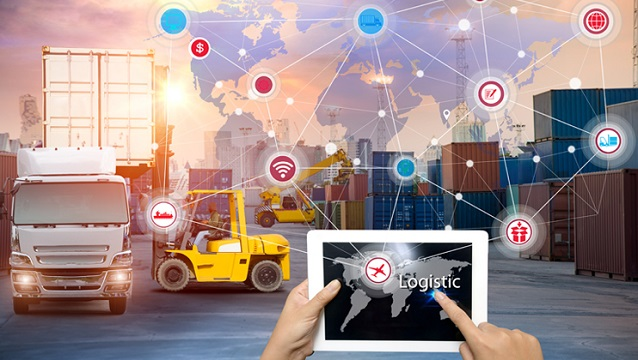In the rapidly evolving world of global trade, the need for efficient, reliable, and customized forwarding solutions has never been more critical. As businesses expand their operations across borders, the complexities of logistics and transportation multiply, highlighting the importance of having a proficient partner to navigate these challenges. Lean more about the global forwarding, a sector that stands at the forefront of international trade, offering streamlined solutions that ensure goods move across the globe seamlessly.
At the heart of global forwarding is the integration of various transportation modes—air, sea, and land. This multidimensional approach facilitates the smooth transition of goods from the manufacturer to the end consumer, traversing countries and continents. What makes global forwarding stand out is its ability to adapt to the dynamic demands of the market, offering tailor-made solutions that cater to the unique needs of each business. Whether it’s managing complex customs regulations or optimizing supply chain processes, forwarding services are designed to enhance efficiency and reduce operational costs.
One of the key players in this field is startolio.com, a transportation and logistics provider dedicated to addressing the unique needs of businesses and individuals alike. Startolio specializes in prompt and reliable delivery solutions, showcasing a deep understanding of the intricate dynamics of global logistics. Their expertise lies not just in moving goods from point A to point B but in ensuring that each step of the journey is optimized for speed, efficiency, and cost-effectiveness.
The beauty of global forwarding lies in its versatility. Whether you’re a small enterprise looking to expand your reach or a large corporation managing a complex distribution network, the right forwarding partner can make all the difference. Services range from freight booking and cargo consolidation to customs clearance and warehousing, each tailored to the specific requirements of the shipment and the goals of the client.
For businesses seeking to navigate the complexities of international trade, the importance of choosing a forwarding partner that understands your needs cannot be overstated. It’s here that Startolio shines, offering a comprehensive suite of services designed to meet the diverse demands of global logistics. From prompt and reliable delivery solutions to specialized handling of sensitive or oversized shipments, their expertise ensures that your goods are in safe hands. For more information on how Startolio can cater to your logistics needs, you can explore the service page on their website.
Global forwarding is not just about transportation; it’s about creating a seamless experience that connects businesses with markets worldwide. It’s about understanding the nuances of international trade laws, navigating customs regulations, and optimizing logistics strategies to ensure timely delivery. This is where the value of a knowledgeable and experienced forwarding partner becomes apparent, offering insights and solutions that go beyond mere transportation.
As the global market continues to evolve, the role of forwarding services in facilitating international trade will only grow in importance. With challenges such as fluctuating fuel prices, changing trade policies, and the increasing demand for sustainable logistics solutions, the need for innovative and adaptable forwarding solutions is clear. In this dynamic landscape, companies like Startolio are leading the way, offering customized solutions that address the unique challenges of global logistics.
Global forwarding is a critical component of the international trade ecosystem, providing the backbone for businesses to reach new markets and expand their operations. With the right partner, companies can navigate the complexities of global logistics with confidence, ensuring that their goods arrive safely, efficiently, and cost-effectively. As the world becomes increasingly interconnected, the role of forward-thinking logistics providers like startolio.com will continue to be stay important.
The future of supply chain transportation is likely to be shaped by several emerging trends. These include the increased use of autonomous vehicles, drones for last-mile delivery, and greater reliance on blockchain technology for enhanced transparency and security. The integration of these technologies promises to make supply chains more efficient, reliable, and cost-effective.
Global supply chain disruptions, such as those caused by pandemics, geopolitical tensions, and natural disasters, pose significant challenges. They can lead to delays, increased costs, and reduced efficiency. Addressing these issues requires resilience planning and diversified sourcing strategies.
For businesses looking to optimize their supply chain transportation, best practices include embracing technological innovations, fostering strong partnerships with logistics providers, and maintaining flexibility in operations. Regularly reviewing and updating transportation strategies to adapt to changing market conditions and technological advancements is also key.
Advanced route planning is crucial for efficient transportation. By leveraging AI and sophisticated algorithms, companies can determine the most efficient routes, considering factors like traffic, weather, and delivery windows. This reduces travel time and fuel consumption, leading to significant cost savings.
Transportation in supply chain management is more than moving goods; it’s about efficiently connecting various parts of the supply network. At its core, it involves selecting the most effective modes of transportation, managing costs, ensuring timely delivery, and maintaining the quality of goods in transit. Different goods require different transportation strategies; for instance, perishable items need faster, temperature-controlled logistics, while bulky goods might need more space and sturdy transportation modes.
In the age of digital transformation, technology is a game-changer in supply chain logistics. Integrating advanced tools such as AI, machine learning, and IoT devices helps in forecasting demands, route optimization, and real-time tracking. This integration not only boosts efficiency but also enhances transparency across the supply chain.
